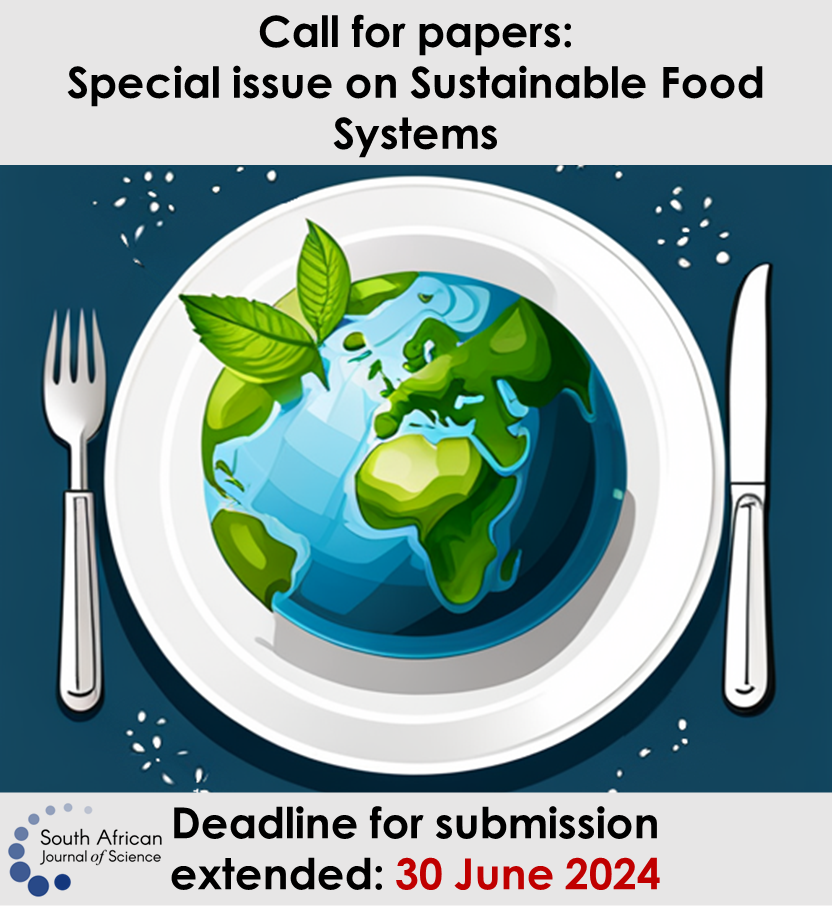Evaluating ‘homegrown’ research networks in Africa
DOI:
https://doi.org/10.17159/sajs.2018/20170070Keywords:
research networks, policy formulation, science–policy interface, evidence-based policymaking, research collaborationAbstract
Attempts to improve the policy environment have led to a growing pressure on governments in Africa to embark on policymaking that is more evidence based and considers a wide spectrum of scientific and indigenous knowledge. Local – or ‘homegrown’ – research networks on the continent can help strengthen the role of scientific knowledge in policymaking by increasing the capacity of researchers and by enhancing the visibility and communication of the research produced. While a large number of regional and sub-regional research networks have sprung up in Africa, the mere existence of networks does not guarantee their success. In reality, the impact of research networks on the science–policy interface depends on how well the networks operate in practice. We present a framework for evaluating the effectiveness of research networks in a way that is comparable across networks. The evaluation framework was used to evaluate two sub-regional research networks: the NEPAD Southern African Networks of Water Centres of Excellence (SANWACTE) and the NEPAD Southern African Network for Biosciences (SANBio). The evaluation revealed some shared constraints limiting the effectiveness of both networks, including uneven regional representation, asymmetry between network members, and difficulties in securing sufficient, diverse and sustainable resources. Further research into network design and funding models is suggested in order to enhance the role of these networks in providing locally appropriate knowledge for policymaking on the continent.
Significance:
- While a large number of research networks have sprung up in Africa, the mere existence of networks does not guarantee success.
- Uneven regional representation, power asymmetries, and limited funding constrain the effectiveness of research networks.
Published
How to Cite
Issue
Section
License

All articles are published under a Creative Commons Attribution 4.0 International Licence
Copyright is retained by the authors. Readers are welcome to reproduce, share and adapt the content without permission provided the source is attributed.
Disclaimer: The publisher and editors accept no responsibility for statements made by the authors














.png)